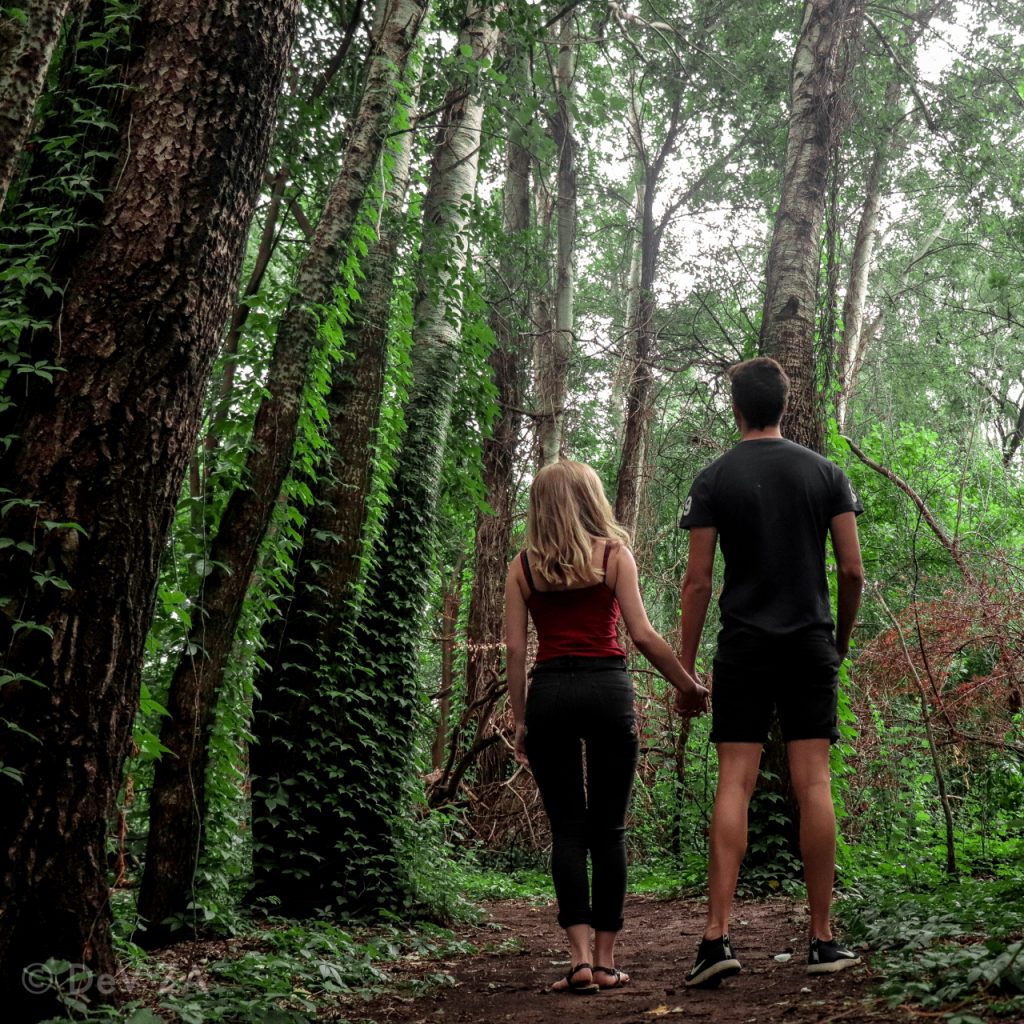The evidence is mounting that time in nature makes you happier, healthier and smarter. Forest Therapy – known in Japan as Shinrin-yoku – triggers your body’s own anti-depressant response, boosts your immune system and even increases your creativity and mental capabilities.
If you have ever walked in nature Thoreau-style, you may already know the therapeutic benefit of contemplative time in the natural world. In the 1980s, Japan recognised the physiological and psychological dangers of stress and depression brought about by rapid industrialisation and sought an affordable and effective way to combat it. This was the beginning of Shinrin (forest) and Yoku (bath), which roughly translates to ‘taking in the forest atmosphere’ or ‘forest bathing’. It’s the Japanese mindfulness practice of taking time away from busyness by meandering amongst the trees.
What began as little more than a guided walk for the purposes of relaxation has evolved into something significantly more scientific. Now, global researchers of Shinrin yoku have identified a raft of physiological and psychological benefits, suggesting that time in nature, and specifically forests, relieves stress, refreshes and energises us, restores our ability to focus, increases creativity, lowers the risk of depression and even helps us to live longer.
While spending time in any natural environment is typically a relaxing experience, Japanese researchers have discovered something particularly beneficial about forests; the high-concentrations of phytoncides in the air. Phytoncides are the volatile oils that trees and other plants produce to protect themselves from disease and predation via a wide array of anti-microbial, anti-inflammatory, anti-bacterial and anti-fungal properties. Some of these oils are emitted into the air as organic aerosols. When humans inhale forest air, some of these volatile organic compounds trigger a range of remarkable effects which scientists are still working to explain. So far, forest air has been shown to balance neuroendocrine hormone levels, reduce levels of stress hormones like cortisol, alleviate stress-induced immunosuppression, and boost the Natural Killer (NK cells) responsible for fighting viruses and tumours. Add to that, the compounding benefits of exercise, oxygen, vitamin-D, mindfulness, and connection with others; and forest therapy suddenly starts to make a lot of sense.
But what if you cannot get to a forest? Feedback from regular participants at Forest Therapy walks at the Royal Botanic Gardens in Melbourne, and Sydney shows that when people are immersed in green spaces, even in urban nature, they tend to have more positive emotions and vitality compared to being indoors.

What is Forest Therapy?
Forest Therapy is more than just a walk in nature. “Forest Therapy is an evidence-based Public health practice. Guided Forest Therapy walks combine a specific blend of complementary physical and mental exercises in suitable forest surroundings leading to a lower heartbeat, blood pressure and stress levels. At the same time, the immune system, breathing and overall physical and mental fitness and agility are strengthened.”
Forest Therapy as defined in the International Handbook of Forest Therapy (IHFT; edited by Kotte, Li, Shin and Michalsen 2019)
What are the Benefits of a Forest Therapy Walk for You and Your Team?
“Nature is not only nice to have, but it’s a must-have for physical health and cognitive function.”
According to the World Health Organization, stress is the health epidemic of the 21st century and is responsible for many forms of preventable lifestyle illnesses. While we begin to research and understand the longer-term mental health implications of Covid-19, businesses and staff alike are adapting to the challenges of hybrid working environments, workplace and team dynamics. We have yet to find out how long this pandemic will last, but with a cautious look to the future, businesses are now more aware of nature’s important role in our professional and personal lives. Not to mention the ways in which nature can inspire and influence business leaders with regards to the change they want to see, adopting sustainable and regenerative business practices. No doubt, nature is good for business and the planet.
There are well-researched benefits to being outdoors, especially if your work day involves sitting in front of a screen or if you are juggling your smartphone all the time. Whilst these studies show that even short breaks can boost engagement at work, a break to your nearby park or green gets you moving in the fresh air and getting the required dose of vitamin D.
Turns out, the serene, balanced and positive feeling you get after ‘forest bathing‘ is just one of the many benefits backed up by science:
- Boosted immune system functioning, with an increase in the count of the body’s Natural Killer (NK) cells
- Greater parasympathetic nerve activity and lower sympathetic nerve activity
- Reduced blood pressure
- Reduced stress, anxiety and rumination
- Improved mood
- Increased ability to focus, even in children with ADHD
- Accelerated recovery from surgery or illness
- Increased energy level
- Improved sleep
Do I need a Forest Therapy guide to experience the benefits of nature?
You can take a DIY approach to enjoy the benefits of a nature walk. However, the benefits are best experienced with an INFTA-Certified and Accredited Forest Therapy Guide, who curates a relaxing and healing guided immersion for individuals and groups. Their supportive presence helps participants feel safe, slow down, and fully immerse in the sights, sounds, smells and other sensations of nature in the ‘atmosphere of the forest’. Typically, you will spend about two hours under the canopy of trees, stepping into a quiet space to experience the pleasurable and soothing shift that happens when we make time to notice, observe and connect with nature and each other. Guided Shinrin-yoku can have substantial health benefits – physical, mental and emotional. Organisations should engage Forest Therapy Guides to connect their staff with nature – to walk and talk – wander and ponder. Most certainly, this has a positive effect on employee wellbeing, performance and on the strategic resilience of a business.
I took a walk in the woods and came out taller than the trees. Henry David Thoreau
Sounds good? Be rest assured: it IS good!
About the Author: Susan Joachim is the President of the International Nature and Forest Therapy Alliance (INFTA). Connect with her on LinkedIn here


